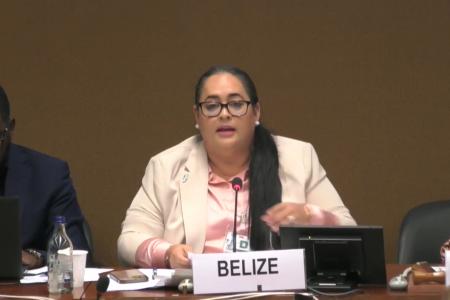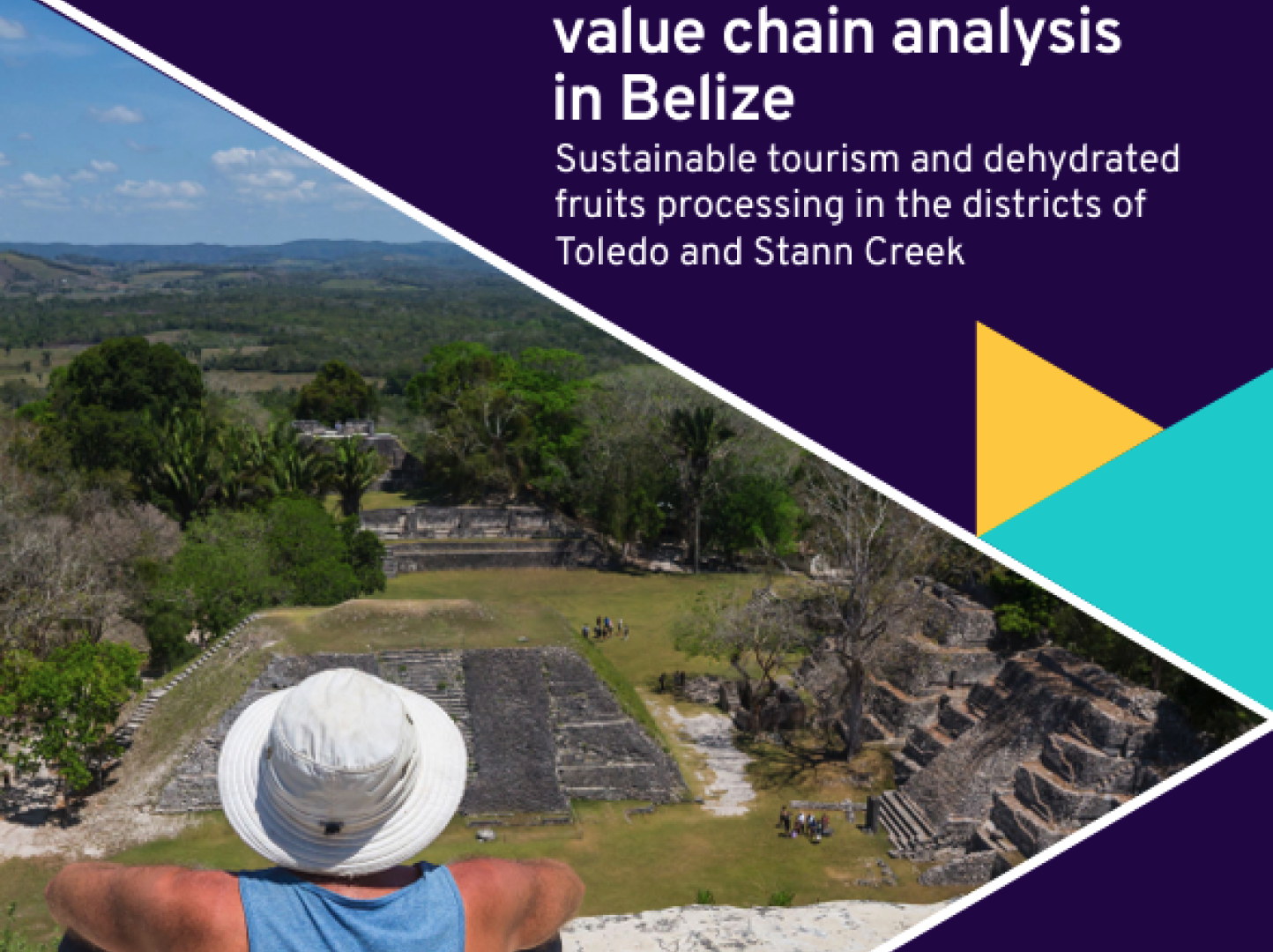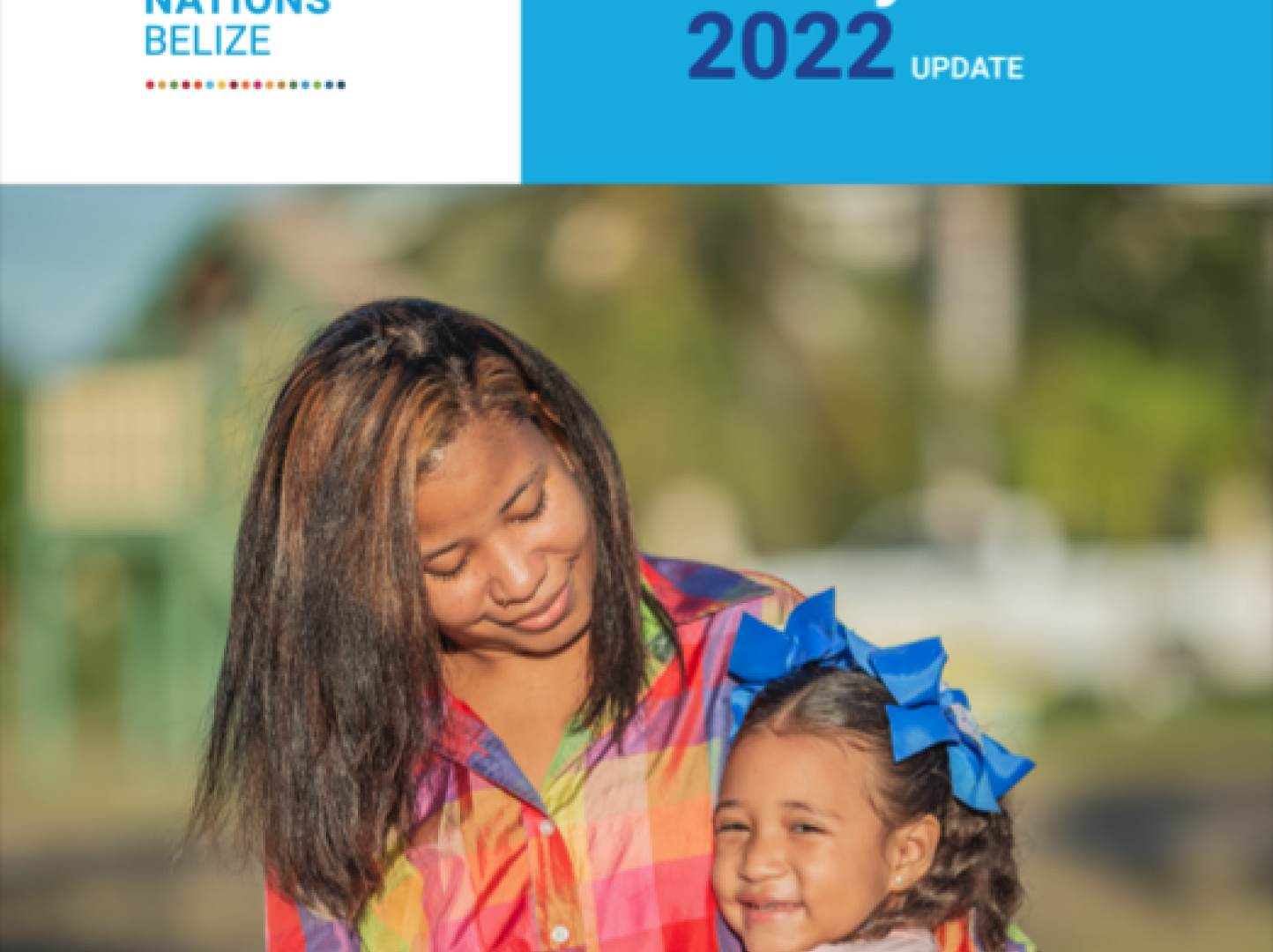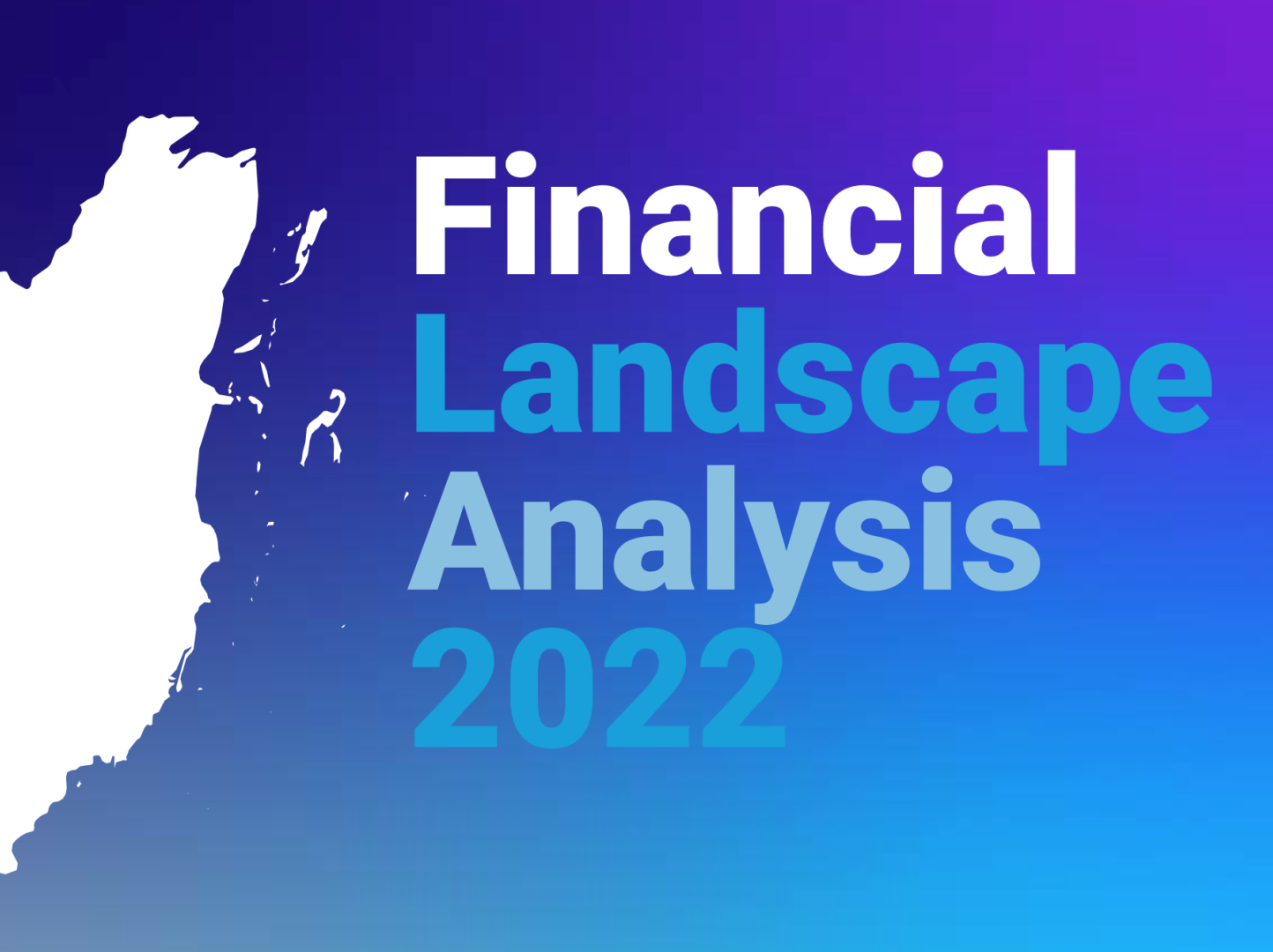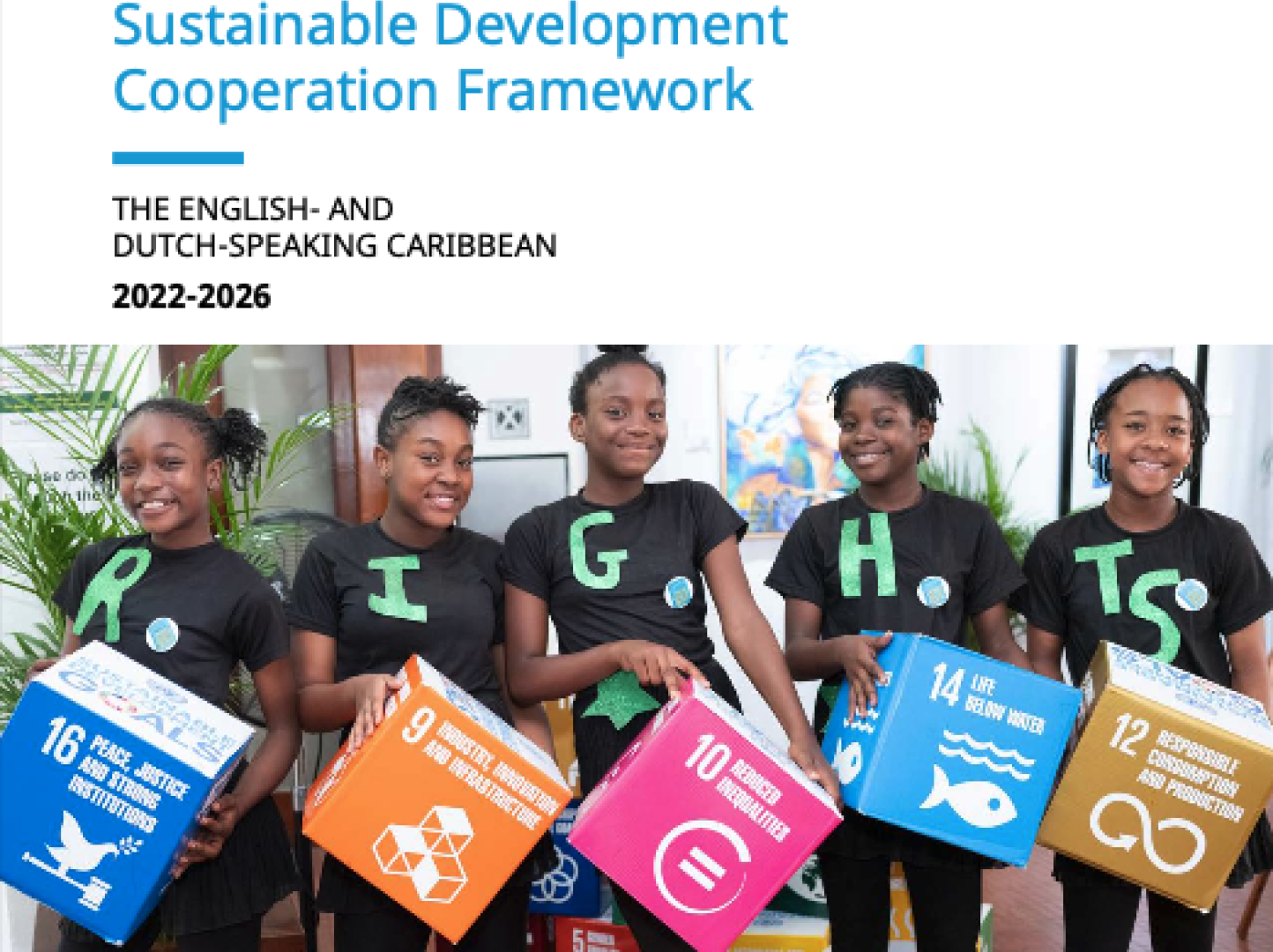Latest
Press Release
18 December 2025
UNFPA Belize Donates Laptops to Strengthen Health Sector Supply Chain Management
Learn more
Press Release
25 November 2025
Message on the International Day for the Elimination of Violence Against Women
Learn more
Story
04 June 2025
Joint National Steering Committee convenes to advance Cooperation Framework goals in Belize
Learn more
Latest
The Sustainable Development Goals in Belize
The Sustainable Development Goals are a global call to action to end poverty, protect the earth’s environment and climate, and ensure that people everywhere can enjoy peace and prosperity. These are the goals the UN is working on in Belize:
Publication
30 May 2025
United Nations Belize: 2024 Country Results Report
The 2024 Country Results Report tells of strong partnerships and an unwavering commitment to deliver sustainable, inclusive development to the people of Belize. It highlights achievements in meeting measurable targets, and relates stories of resilience, empowerment, and change, shaped by the people of Belize with the assistance of the United Nations and its development partners. Over the year, the United Nations Country Team in Belize worked alongside Government counterparts, civil society, youth leaders, and communities to accelerate development priorities outlined in the National Medium-term Development Strategy (MTDS). These collaborations yielded social protection reforms, stronger national data and statistical systems, and targeted support to thousands of families, farmers, migrants, women and children across the country. These outcomes have laid the foundation for the UN's continued development partnership with the Government and people of Belize.
1 of 5
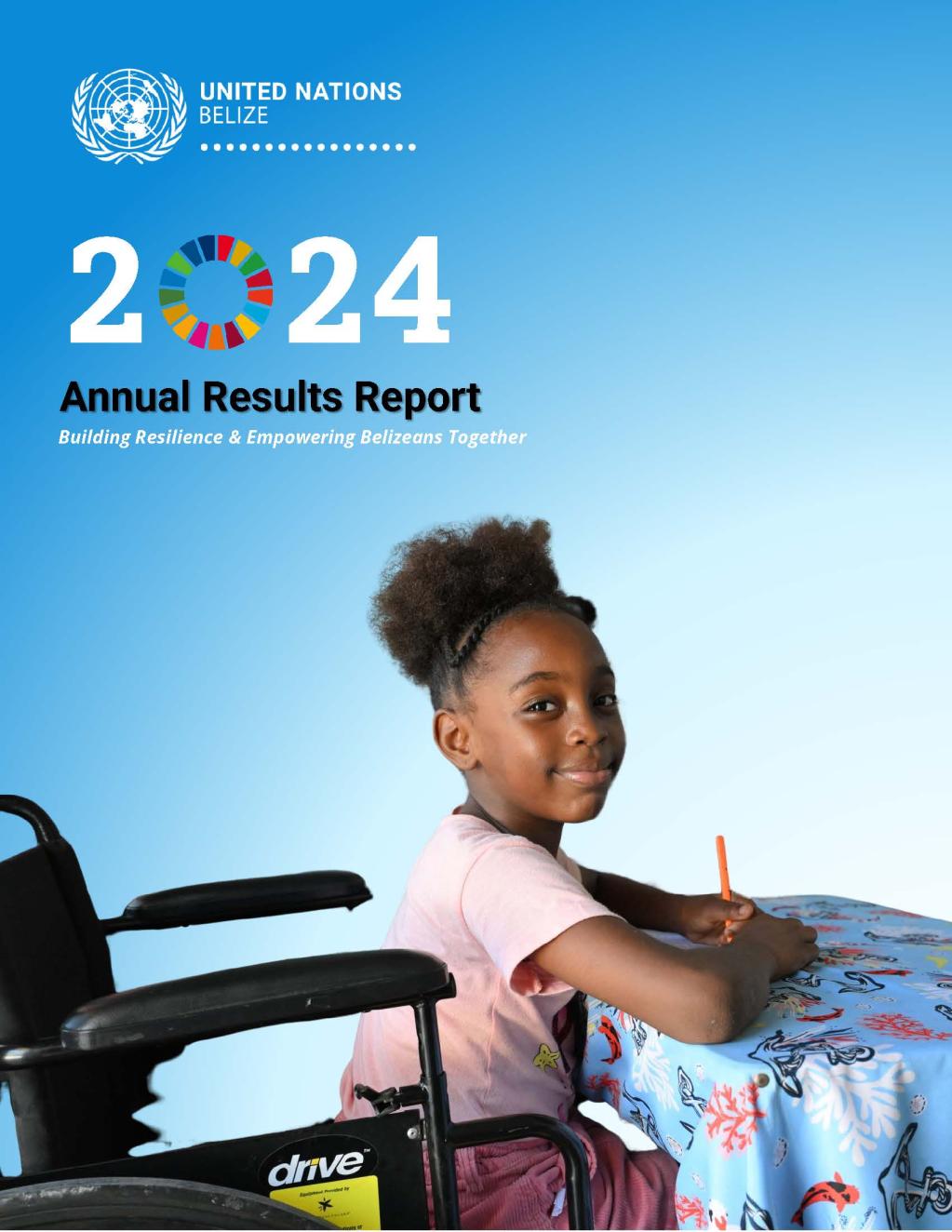
Publication
31 July 2024
Decent Work Country Programme, Belize 2024-2029
The Belize Decent Work Country Programme (DWCP) for 2024-2029 sets out the common commitment of the Government of Belize, workers’ and employers’ organisations, and the International Labour Organization (ILO) to promote decent work, and ensure it is at the heart of national development in Belize. During the period 2024-2029, the ILO will work in partnership with the Government of Belize and the social partners to address national decent work challenges. The ILO’s approach reflects the development of a ‘new generation’ of DWCPs designed to support achievement of both national and international development goals, and faciliate partnerships that can produce meaningful change. Activities and results identified in this document are based on clear theories of change, developed through consultation with Belizean constituents.
1 of 5
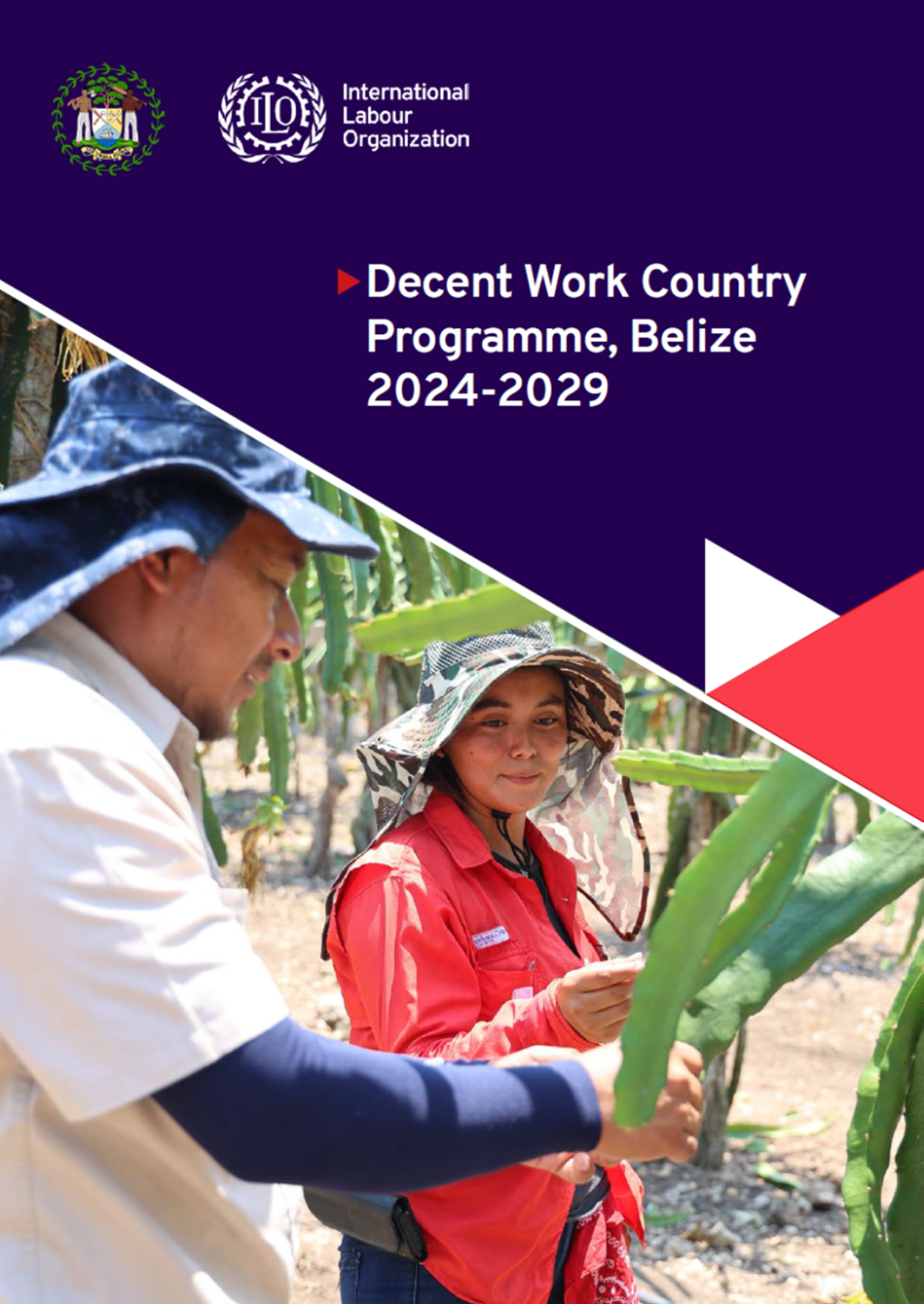
Publication
26 November 2024
United Nations Belize Common Country Analysis, October 2024
The United Nations Common Country Analysis (CCA) 2024 Update provides an in-depth analysis of Belize’s socio-economic landscape, its progress on the Sustainable Development Goals (SDGs), and ongoing efforts to strengthen human rights, governance, human development and climate resilience. The CCA also emphasises the importance of confronting key development challenges to advance achievement of the SDGs and recover progress lost on account of the COVID-19 pandemic. This report builds on comprehensive data and consultations with national stakeholders, ensuring that the strategic support provided by the United Nations is aligned with Belize’s national priorities, international commitments, and the 2030 Agenda for Sustainable Development.
1 of 5
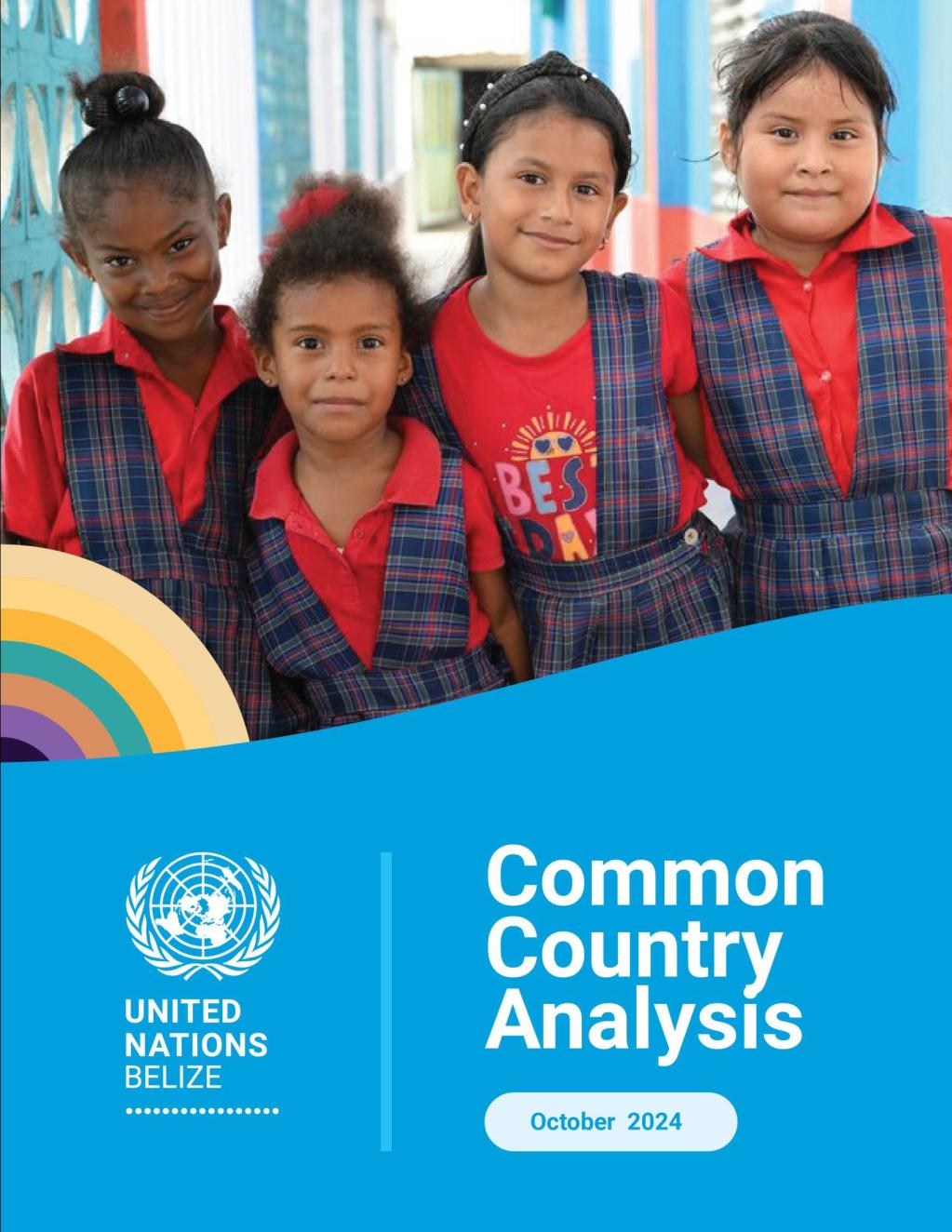
Story
07 August 2024
Government of Belize affirms its development partnership with the UN
The Government of Belize and the United Nations Country Team convened its 4th Joint National Steering Committee Meeting, co-chaired by H.E. Amalia Mai, CEO in the Ministry of Foreign Affairs and Foreign Trade, and Mr. Raul Salazar, United Nations Resident Coordinator for Belize and El Salvador. This Steering Committee provides strategic oversight and guidance for the United Nations Multi-Country Sustainable Development Cooperation Framework (UNMSDCF) 2022-2026 which covers 22 countries in the English and Dutch-speaking Caribbean adopted by Belize in December 2021.During the meeting, several key areas of cooperation between the Government of Belize and the United Nations were discussed. These included a progress update on the Sustainable Development Goals (SDGs) in Belize following its recently completed Voluntary National Review (VNR), as well as the upcoming national Youth Dialogue on 9 August 2024 in preparation for the global Summit of the Future in September as part of the 79th UN General Assembly. The agenda also focused on gaps and opportunities in Disaster Risk Reduction and enhancing national Development Partner Coordination.H.E. CEO Amalia Mai emphasized the critical importance of the continued partnership with the UN to facilitate transformative initiatives that can yield quick and impactful results to accelerate the achievement of the SDGs by 2030. "Through the Joint National Steering Committee with the UN, we are able to jointly engage on the evolving national context, including Belize's regional and international commitments, while strategically aligning the implementation of the UNMSDCF 2022-2026 with Belize's Medium-term Development Strategy (MTDS) 2022-2026." A key highlight of the meeting was the formal handing over of the UN Country Results Report (CRR) for 2023 and the signing of the UN Country Implementation Plan (CIP) for 2024-2025 under the second planning cycle of the Cooperation Framework. The plan outlines 161 projects to be implemented by fifteen (15) UN Agencies, Funds, and Programmes working in Belize with a total budget of US $47.0 million, of which 45% is to be mobilized.UN Resident Coordinator Raul Salazar reiterated the continued commitment of the UN Country Team in Belize to work in close partnership with the Government to continue advancing sustainable development. "As a small island developing state (SIDS), Belize continues to face multiple economic, social and environmental vulnerabilities requiring innovative solutions that leverage partnerships at all levels. The UN CIP 2024-2025 reflects the views of communities, academia, vulnerable groups, and government to ensure that the actions respond to the needs of the people of Belize aligned to national development priorities. The UN’s main mandate is to remain functional and fit-for-purpose to improve the living conditions of all Belizeans." The Plan covers four (4) key pillars in the UNMSDCF which include: Shared Prosperity and Economic Resilience Equality, Well-Being and Leaving No One Behind Resilience to Climate Change and Sustainable Natural Resource Management Peace, Safety, Justice and the Rule of LawThe Government of Belize and the United Nations in Belize acknowledge this joint milestone and underscore the continued importance of its partnership in working together towards a prosperous and sustainable future for all Belizeans. For media inquiries, please contact: Kevin Chen, Communications Officer, Ministry of Foreign Affairs and Foreign Trade, Government of Belize, Phone: +501-880-2322, Email: ChenK@gobmail.gov.bz Mirsy Ponce, Executive Associate, Office of the Resident Coordinator, United Nations in Belize, Phone: +501-822-2171, Email: Mirsy.Ponce@un.org
1 of 5
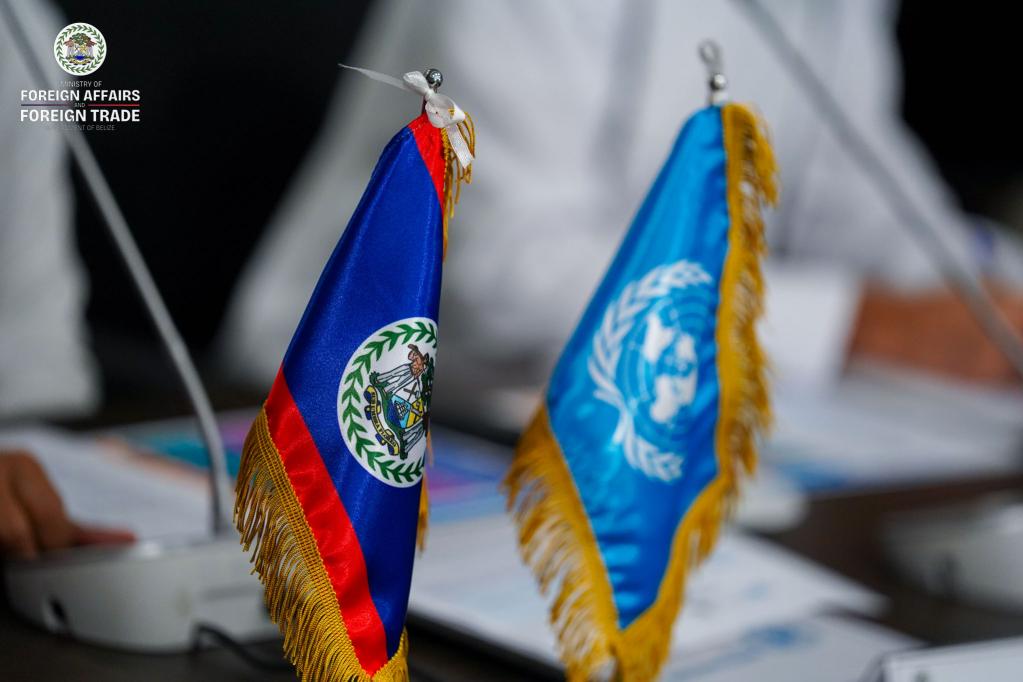
Publication
04 May 2023
United Nations Multi-Country Sustainable Development Cooperation Framework: The English- and Dutch-Speaking Caribbean 2022-2026
The Multi-Country Sustainable Development Cooperation Framework (MSDCF) for the English- and Dutch-speaking Caribbean, covering the period 2022-2026, is the most important instrument for planning and implementation of the UN development activities towards the fulfilment of the 2030 Agenda. This framework has been developed as the world continues to grapple with the COVID-19 pandemic. In the Caribbean, as elsewhere, the impact of the pandemic aggravated and revealed existing structural vulnerabilities and provides the opportunity to ‘build back better’. To address such vulnerabilities the UN and the governments in the region are committing to contribute to significant structural changes in the economies and governance systems of the countries, towards:
» Economic resilience and shared prosperity;
» Equality and well-being;
» Resilience to climate change and shocks, and sustainable natural resource management;
» Peace, safety, justice, and the rule of law.
Under each of these four priority areas, specific desired changes were defined for UN contribution. The Vision is for the region to become more resilient, possess greater capacity to achieve all the SDGs, and become a place where people choose to live and can reach their full potential. UN contributions will be operationalised at the country level, while adopting regional solutions where relevant, fostering regional cooperation and integration, and being guided by the principle of ‘leaving no one behind’.
1 of 5
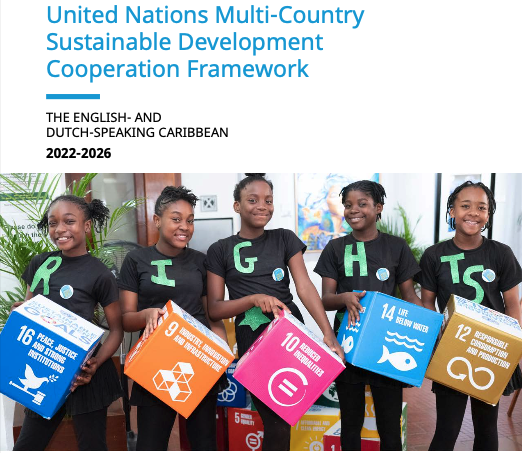
Story
04 June 2025
Joint National Steering Committee convenes to advance Cooperation Framework goals in Belize
The Government of Belize and the United Nations Country Team (UNCT) convened its 5th Joint National Steering Committee Meeting, co-chaired by H.E. Amalia Mai, CEO in the Ministry of Foreign Affairs, Foreign Trade and Culture, and Mr. Raúl Salazar, United Nations Resident Coordinator for Belize and El Salvador. The Joint Steering Committee provides strategic oversight and guidance for the United Nations Multi-Country Sustainable Development Cooperation Framework (UNMSDCF) 2022-2026, which covers 22 countries in the English and Dutch-speaking Caribbean and was adopted by Belize in December 2021.The meeting facilitated an exchange between Heads of UN Agencies, Funds and Programmes and Chief Executive Officers (CEOs) across several government line ministries around key areas of strategic cooperation. During this dialogue, the Government outlined its strategic priorities under Plan Belize 2.0, which is linked to the Pact for the Future adopted by United Nations Member States in 2024. The meeting also endorsed re-alignment of UNMSDCF 2022-2026 with Belize’s Medium-term Development Strategy (MTDS) 2022-2026. A key agenda item was the UNCT’s presentation of the United Nations Country Results Report (CRR) on the Country Implementation Plan (CIP) for 2024-2025. The CIP includes 161 projects to be implemented by 15 UN Agencies, Funds and Programmes working in Belize with an estimated budget of US $47 million. The UNCT also led a discussion on the Funding Compact 2.0 including opportunities to expand programming and partnerships in Belize.Mr. Salazar reaffirmed the commitment of the UN Country Team to continue its partnership with the Government on advancing sustainable development in Belize. "In the 2025 context, the UN Secretary General’s call for global unity remains more critical than ever to leave no one behind and achieve the SDGs by 2030. As the UN marks its 80th anniversary this year, it is both a time to celebrate key milestones and achievements, but also to innovate and adapt in a changing global environment. The 2024 Voluntary National Review (VNR) on all 17 SDGs shows that Belize has made progress in several areas including a reduction of multidimensional poverty from 36.5% in 2021 to 26.4% in 2023 (SDG1), reduction of unemployment rate from 13.7% to 2.1% in 2024 (SDG 8), and conserving 30% of Belize’s ocean space under the Blue Bond (SDG13 & 14) to name a few examples. The UN Country Team stands ready to continue to support Belize in achieving its Medium-Term Development Strategy and SDG acceleration by 2030.” The meeting closed with an exchange around the International Cooperation Council (ICC) established by the Government in 2023, the UN’s 80th anniversary commemoration in Belize, and the roadmap for the new UN Multi-Country Sustainable Development Cooperation Framework (UNMSDCF) 2027-2031 currently in the planning and development stage. Contact:
Mirsy Ponce
Executive Associate
Office of the UN Resident Coordinator
United Nations in Belize
Phone: +501-822-2171
Email: Mirsy.Ponce@un.org
Mirsy Ponce
Executive Associate
Office of the UN Resident Coordinator
United Nations in Belize
Phone: +501-822-2171
Email: Mirsy.Ponce@un.org
1 of 5

Story
09 May 2025
Belize Advances Towards Inclusive and Multi-Hazard Early Warning Systems
The first national consultation on the “Early Warnings for All” (EW4All) initiative marked a key step in assessing the current state of early warning systems in Belize and identifying gaps that will inform the development of a concrete national roadmap. This plan will guide the country towards accessible, inclusive, and multi-hazard early warning systems that go beyond meteorological risks and incorporate a broader range of threats.Held from May 5 to 7, the consultation was convened by the Government of Belize, the United Nations Resident Coordinator’s Office, and partners such as the United Nations Office for Disaster Risk Reduction (UNDRR), the World Meteorological Organization (WMO), the International Telecommunication Union (ITU), and the International Federation of Red Cross and Red Crescent Societies (IFRC). The meeting enabled the consolidation of a national diagnosis of gaps and opportunities, as well as the outlining of pillars and areas for improvement that will shape a coordinated national strategy.“Let this workshop be the starting point for a renewed national commitment: where we strengthen our multi-hazard early warning systems, mobilize the necessary financial and human resources, and align our efforts with ongoing initiatives. ‘Early Warnings for All’ should not be just a vision of the United Nations—it must be Belize’s vision. Together, with knowledge, partnerships, and willpower, we can build a more resilient and inclusive Belize for future generations,” stated Carlos Pol, Executive Director of the Ministry of Economic Development, on behalf of Prime Minister Hon. John Briceño.This national process is supported by a set of complementary initiatives. Among them is the development of the Country Work Programme (CWP), led by the National Emergency Management Organization (NEMO) with support from the Caribbean Disaster Emergency Management Agency (CDEMA), which defines risk management priorities for the next four years. The Climate Risk and Early Warning Systems (CREWS) project—jointly implemented by UNDRR and WMO—enhances the enabling environment for these systems. These efforts are further complemented by Belize’s active participation in the Making Cities Resilient 2030 (MCR2030) initiative.“We recognize the strong commitment of the Government of Belize to disaster risk reduction, clearly reflected in the development of the CWP and its focus on inclusive and integrated early warning systems,” said Nahuel Arenas, Chief of the UNDRR Regional Office for the Americas and the Caribbean. “At UNDRR, we reaffirm our support to work alongside local governments in strengthening resilience and protection for all people,” he added.The consultation also served as a platform to launch the joint programme of the Joint SDG Fund titled “Inclusive Resilience in Safe and Smart Spaces in Belize,” implemented by UN Women and UNDRR, in partnership with the Ministry of Rural Transformation, Community Development, Labour and Local Government. The programme focuses on urban resilience, gender equality, and community safety, promoting safe and smart spaces and the development of inclusive local resilience plans for Belize City.The launch began with the official ceremony of Belize City’s accession to the MCR2030 initiative. During the event, Mayor Bernard Wagner formally handed over the signed letter of commitment to the UNDRR Regional Chief, thus marking the city’s incorporation into this global network and reinforcing its commitment to building a safer and more resilient urban future.“Our participation in MCR2030 goes beyond symbolism. It is a clear statement that Belize City is committed to a future where safety, preparedness, sustainability, and inclusive urban development are not optional, but essential,” declared Mayor Bernard Wagner.“This effort aims to ensure that more people—especially in the most vulnerable communities—receive timely alerts and know how to respond,” said Henry Charles Usher, Minister of the Public Service, Governance, and Disaster Risk Management.Beyond reports and diagnostics, the true impact of these initiatives will be measured by their ability to save lives and protect livelihoods, particularly in vulnerable communities and among historically excluded groups.“Belize’s commitment to linking national policies with concrete local actions is an encouraging step towards the goals of the Sendai Framework. This progress reminds us that when we work in coordination and keep people at the center, resilience is not only possible—it is real,” stated Raúl Salazar, United Nations Resident Coordinator in Belize and El Salvador.Resilience is more than a policy—it is a daily practice that requires coordination, evidence, participation, and political will. On this path, Belize and El Salvador recognize each other as natural partners. What is learned in one context can—and should—strengthen action in the other.
1 of 5

Story
12 February 2025
Belize lauded for advancing women and girls' right to education
Belize has been praised by the Committee on the Elimination of Discrimination against Women (CEDAW) for advancing the right of women and girls to education. The Committee, which consists of 23 international experts on women's rights, monitors implementation of the Convention on the Elimination of All Forms of Discrimination against Women and reviews progress made by countries in fulfilling their obligations under the treaty. Alongside the commendation, Committee experts reviewing Belize's combined fifth to ninth periodic reports on implementation of the treaty, also raised concerns about women's and girls' access to healthcare in Belize and the prevalence of gender-based violence, particularly in relation to gang activity.One Committee member praised Belize's efforts to improve access to education for women and girls, notably through the creation of the Belize Education Upliftment Programme, launched to improve access to education for students from low-income households. The introduction of compulsory psychosocial support sessions for children aged five and six was also highlighted as a positive step for its role in boosting emotional intelligence, self-esteem, and positive behaviours — all traits that support building healthy relationships.The Committee also registered its deep concern about the prevalence of gender-based violence in Belize, noting its connection to high levels of insecurity, proliferation of firearms, and gang warfare. About 65 per cent of murdered women and girls in Belize are victims of gender-related killings or femicide, with half of these murders committed using firearms.The Belizean delegation, led by Elvia Vega-Samos, Minister of State in the Ministry of Human Development, Families and Indigenous Peoples' Affairs, acknowledged these challenges, outlining measures being taken to combat gun violence and drug trafficking, including enhanced policing efforts and outreach programmes targeting vulnerable youth. While the Committee further commended Belize for removing fees in public hospitals and deciding to waive taxes on feminine hygiene products, experts inquired about adolescent pregnancy rates and the government's efforts to address this issue, as well as measures to ensure safe access to sexual and reproductive health services, including safe abortion services.CEDAW was established by the Convention on the Elimination of All Forms of Discrimination against Women. Belize, having ratified the Convention in 1990, is one of the 189 state parties legally obligated to implement the treaty's provisions and is subject to regular review by CEDAW.
1 of 5
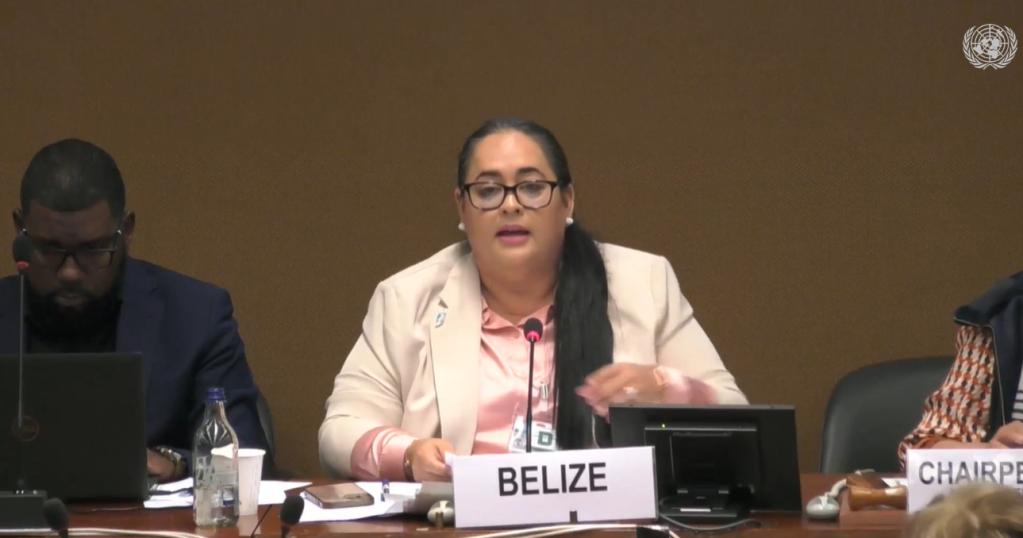
Story
29 November 2024
Op-ed: Taking the Rights Path to End AIDS in Belize
As we commemorate World AIDS Day 2024 under the theme, “Take the Rights Path,” we are reminded that the fight against HIV and AIDS transcends medical advancements. It demands a commitment to human rights and social justice. For Belize, this theme resonates powerfully as the country grapples with a concentrated HIV epidemic that disproportionately impacts marginalized populations.Tackling Belize’s HIV Epidemic: An Urgent PriorityBelize, with an HIV prevalence of 1.3% among the general population, has one of the highest prevalence rates in Central America and ranks above the Caribbean average of 1.2%. An estimated 3,700 people are living with HIV in the country with about half of them on treatment. While new infections have declined by 29% since 2010, surpassing the regional average reduction of 22%, challenges persist.Young people aged 15-24 years accounted for 18% of all new infections in 2023, signaling a need for tailored interventions. Key populations, particularly gay, bisexual and other men who have sex with men (MSM), face disproportionately high prevalence rates, underscoring their heightened vulnerabilities.AIDS-related deaths have risen by 14% since 2010, with more males than females succumbing to the disease, underscoring the urgent need for better early diagnosis, treatment coverage, and retention in care. For the second consecutive year (2023–2024), national data indicates that males aged 20–49 are being newly diagnosed with HIV at a rate 1.5 times higher than females in the same age group. Furthermore, over 40% of people living with HIV who are linked to care are lost to follow-up, highlighting significant gaps in appointment adherence. The management of advanced HIV disease remains a major challenge, threatening Belize’s progress toward achieving its National Strategic Plan goals.Despite these challenges, Belize has achieved notable milestones. The elimination of Mother-to-Child transmission of HIV and syphilis was a landmark public health achievement in 2023. Additionally, Belize decriminalized the transmission, exposure, and non-disclosure of HIV through a legislative amendment of its Criminal Code in 2023—a progressive step that reflects the country’s commitment to reducing structural barriers. This will go a long way to lessen stigma and boost support for those living with HIV, promoting openness and better healthcare access. However, stigma, discrimination, and inadequate resources continue to hinder access to critical services, particularly for people living with HIV and for key populations. The high demand for psychological and legal aid services highlights the diverse challenges faced, including domestic violence and substance abuse. According to the Inter-American Commission on Human Rights (IACHR), in its 2023 Annual Report, women, girls and adolescents - including indigenous women, migrant women, and those facing intersectional marginalization - often experience gender-based exclusion from the community, discrimination in employment, police brutality and harassment. Such acts against marginalized groups create fear and discourage individuals from seeking essential health services, perpetuating health disparities and social exclusion. Despite the country’s progress - including legislative advancements such as decriminalizing consensual same-sex activities - LGBTI individuals, sex workers, and people living with HIV continue to face societal discrimination that limits their ability to access justice and healthcare safely. This highlights the importance of addressing structural barriers and creating a legal and social environment that respects and protects human rights for all.Prioritizing Human Rights for long term impact Human rights are fundamental to the health and well-being of every individual and central to ending AIDS as a public health threat. Respecting, protecting, and fulfilling human rights ensures the dignity of all and is critical for achieving Belize’s development goals.Human rights violations, such as pervasive stigma and discrimination faced by people living with HIV and key populations, exacerbate the HIV epidemic. Many of them experience judgment and breaches of confidentiality in healthcare settings, leading to delayed testing, treatment interruptions, and missed prevention opportunities.To address these barriers, Belize must focus on:Expanding Prevention Efforts:
Scale up pre-exposure prophylaxis (PrEP) and post-exposure prophylaxis (PEP) programs. Ensure access to STI screening and treatment services, particularly for MSM and young men, using innovative approaches such as digital media, self-testing, index testing, and partner notification through social and sexual network testing.Addressing Stigma:
Implement culturally sensitive, evidence-based anti-stigma training for healthcare workers and community actors. Create inclusive, judgement-free environments where individuals feel safe seeking care.Strengthening Health Systems:
Build integrated data systems to track progress, improve retention in care, and protect patient autonomy and confidentiality as well collaborating with Civil Society and communities in tracking violations of human rights and seeking redress. Ensure that services are available, accessible, acceptable, of good quality and safe for all.Empowering Communities:
Strengthen community-led initiatives to deliver HIV services and expand safe spaces for Persons living with HIV, and key populations and other vulnerable populations. Capacity building and certification of Lay Testers (peer navigators) should be expanded to enhance their role in bridging gaps in care and to assist in bringing people back to care.A Call to ActionBelize has demonstrated resilience and progress in its HIV response. Landmark achievements, such as the elimination of Mother-to-Child transmission and recent decriminalization reforms, are testament to the government’s commitment. However, the rise in AIDS-related deaths and persistent barriers to care highlight the need for urgent, rights-based interventions. In the words of UN Secretary-General António Guterres, “Ending AIDS as a public health threat by 2030 is achievable. But reaching this goal requires breaking down the barriers keeping people from vital services.”On this World AIDS Day, the United Nations urges policymakers, civil society, and healthcare providers in Belize to take bold steps to end AIDS by 2030:Further Dismantle Barriers:
Build on the success in repealing discriminatory laws, including reducing the age of consent for adolescent access to medical services in line with the Convention on the Rights of the Child, which Belize has domesticated as part of its national laws. Advocate for legal protections that reduce stigma and discrimination in all settings. Push the Equal Opportunities Bill through the legislature. Invest in Prevention:
Expand comprehensive prevention services, including PrEP, HIV self-testing, and STI care, targeting MSM and young men.Support Community Leadership:
Empower civil society organizations to lead the response through capacity-building and sustainable funding mechanisms.Commit to Data-Driven Interventions:
Strengthen monitoring and evaluation systems to guide evidence-based programming and ensure accountability.Ensure Sustainable Financing:
Mobilize domestic resources to complement donor funding and secure the long-term sustainability of Belize’s HIV response.By prioritizing human rights, empowering communities, and fostering strategic partnerships, Belize can accelerate its journey toward ending AIDS and achieving Sustainable Development Goal 3: ensuring health and well-being for all. Let us commit to taking the rights path, ensuring a future where health, dignity, and equality are universal realities for all Belizeans.
Scale up pre-exposure prophylaxis (PrEP) and post-exposure prophylaxis (PEP) programs. Ensure access to STI screening and treatment services, particularly for MSM and young men, using innovative approaches such as digital media, self-testing, index testing, and partner notification through social and sexual network testing.Addressing Stigma:
Implement culturally sensitive, evidence-based anti-stigma training for healthcare workers and community actors. Create inclusive, judgement-free environments where individuals feel safe seeking care.Strengthening Health Systems:
Build integrated data systems to track progress, improve retention in care, and protect patient autonomy and confidentiality as well collaborating with Civil Society and communities in tracking violations of human rights and seeking redress. Ensure that services are available, accessible, acceptable, of good quality and safe for all.Empowering Communities:
Strengthen community-led initiatives to deliver HIV services and expand safe spaces for Persons living with HIV, and key populations and other vulnerable populations. Capacity building and certification of Lay Testers (peer navigators) should be expanded to enhance their role in bridging gaps in care and to assist in bringing people back to care.A Call to ActionBelize has demonstrated resilience and progress in its HIV response. Landmark achievements, such as the elimination of Mother-to-Child transmission and recent decriminalization reforms, are testament to the government’s commitment. However, the rise in AIDS-related deaths and persistent barriers to care highlight the need for urgent, rights-based interventions. In the words of UN Secretary-General António Guterres, “Ending AIDS as a public health threat by 2030 is achievable. But reaching this goal requires breaking down the barriers keeping people from vital services.”On this World AIDS Day, the United Nations urges policymakers, civil society, and healthcare providers in Belize to take bold steps to end AIDS by 2030:Further Dismantle Barriers:
Build on the success in repealing discriminatory laws, including reducing the age of consent for adolescent access to medical services in line with the Convention on the Rights of the Child, which Belize has domesticated as part of its national laws. Advocate for legal protections that reduce stigma and discrimination in all settings. Push the Equal Opportunities Bill through the legislature. Invest in Prevention:
Expand comprehensive prevention services, including PrEP, HIV self-testing, and STI care, targeting MSM and young men.Support Community Leadership:
Empower civil society organizations to lead the response through capacity-building and sustainable funding mechanisms.Commit to Data-Driven Interventions:
Strengthen monitoring and evaluation systems to guide evidence-based programming and ensure accountability.Ensure Sustainable Financing:
Mobilize domestic resources to complement donor funding and secure the long-term sustainability of Belize’s HIV response.By prioritizing human rights, empowering communities, and fostering strategic partnerships, Belize can accelerate its journey toward ending AIDS and achieving Sustainable Development Goal 3: ensuring health and well-being for all. Let us commit to taking the rights path, ensuring a future where health, dignity, and equality are universal realities for all Belizeans.
1 of 5
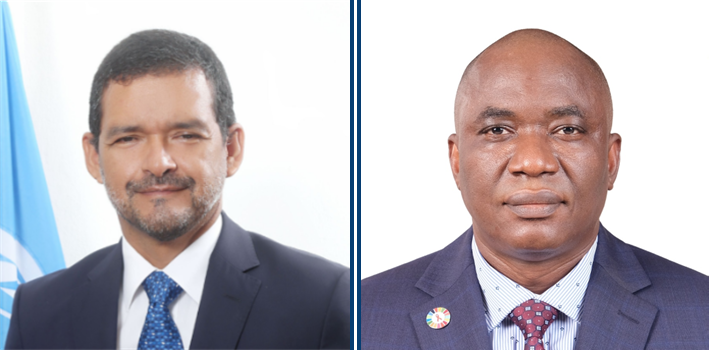
Story
16 August 2024
Belizean youth look towards the Summit of the Future
The Ministry of Foreign Affairs and Foreign Trade with support from the Ministry of Education, Culture, Science and Technology, the Ministry of Youth, Transport and Sports, and the Ministry of Sustainable Development and Climate Change, in partnership with Office of the United Nations Resident Coordinator (UNRCO) and the UN Country Team jointly convened a National Youth Dialogue on the Summit of the Future on 9 August 2024. The event brought together a cross section of over 100 stakeholders including diverse young Belizeans from across the country through academia and youth organizations, with policy and decision makers from the Government and the UN System. Minister of Foreign Affairs, Foreign Trade, Education, Culture, Science and Technology, Hon. Francis Fonseca, emphasized the significance of youth involvement, stating, “Our young people are the torchbearers of our future. Their voices and ideas are crucial in shaping the direction of our nation and the global community. As we look toward the Summit of the Future, it is imperative that we include our youth in these critical conversations.”The Youth Dialogue served as a platform to deepen understanding among young people on critical global challenges, as well as on how actions to address those challenges will impact their future. It created a space for youth to share innovative ideas and solutions to solve the development challenges we face today including rebuilding trust and solidarity to promote more effective international cooperation. It was structured around three (3) panel discussions co-moderated by the Government and United Nations with four (4) youth panelists in each, one from each of the four (4) Universities in Belize including the University of Belize, Galen University, the University of the West Indies, and St. John’s College (University). United Nations Resident Coordinator for Belize, Raul Salazar, remarked that, “Youth engagement is essential to the realization of the Sustainable Development Goals by 2030. By involving young people in dialogues like this, we are not only ensuring that their voices are heard, but we are also empowering them to be active agents of change in building a sustainable and equitable future for all. The UN Country Team in Belize stands ready to continue partnering with the government and academia in ensuring that youth voices remain at the table in leaving no one behind.” The panels of the Youth Dialogue covered three (3) Chapters from the Pact for the Future which will be an inter-governmentally agreed outcome by world leaders from the Summit of the Future taking place 22-23 September 2024 in New York. These panels included:Sustainable Development and Financing for DevelopmentScience, Technology, Innovation and Digital CooperationYouth and Future GenerationsA Youth Representative, Yannika Dorado from the University of the West Indies Global Campus Belize, shared their perspective, stating, “This dialogue has given us the opportunity to contribute our ideas and concerns. We are ready to take on the responsibility of working towards the SDGs and to ensure that our future is one of progress, inclusivity, and sustainability. We appreciate this initiative by the Ministry of Foreign Affairs and Foreign Trade and the United Nations in Belize. Our future hangs in the balance, and it is ours to save.” The National Youth Dialogue is part of Belize's ongoing efforts to promote meaningful youth participation in national and international policy-making processes. The outcomes of the dialogue will contribute to Belize's input at the global Summit of the Future, ensuring that the voices of Belizean youth are represented on the international stage. The event underscores the commitment of the government and United Nations in Belize to continue engaging youth in shaping the policies and actions that will determine the future of the nation and the world.The Youth Dialogue was convened through leveraging partnerships between the Government of Belize, United Nations in Belize, academia, youth and civil society. Acknowledgement is given to the financial and technical support provided by the Office of the UN Resident Coordinator, UN Women, UNICEF, UNDP, UNHCR, UNFPA, UNESCO, PAHO/WHO and OHCHR. For media inquiries, please contact: Kevin ChenCommunications OfficerMinistry of Foreign Affairs and Foreign TradeGovernment of BelizePhone: +501-880-2322Email: ChenK@gobmail.gov.bz Mirsy PonceExecutive AssociateOffice of the UN Resident CoordinatorUnited Nations in BelizePhone: +501-822-2171Email: Mirsy.Ponce@un.org
1 of 5

Press Release
18 December 2025
UNFPA Belize Donates Laptops to Strengthen Health Sector Supply Chain Management
This donation is aimed at enhancing the Ministry’s capacity to strengthen supply chain management of medical supplies, including reproductive health materials. By equipping the MoHW with modern technology, UNFPA supports more efficient monitoring and distribution, within the health sector.The contribution underscores UNFPA’s ongoing commitment through the LNOB Project to reduce inequalities in access to health care and to reinforce institutional capacity by fostering strategic partnerships with key government stakeholders.The Ministry of Health & Wellness expressed its appreciation for the timely support, noting that the equipment will play a vital role in improving health service delivery across Belize.
1 of 5
Press Release
25 November 2025
Message on the International Day for the Elimination of Violence Against Women
Violence against women and girls is a global scourge. And in our digital age, it is being amplified by the reach and speed of technology.That is why online protection is the focus of this year’s International Day for the Elimination of Violence Against Women.Online harassment, deepfakes and hate speech are proliferating.Misogynistic content is moving from the margins to the mainstream.And violence that begins in the digital world can spill over into the physical –– in the form of stalking, abuse, even femicide.Ending this crisis demands action from us all:Governments must criminalize digital violence and strengthen support for survivors. Technology companies must ensure their platforms are safe and accountable.And communities must come together in zero tolerance for online hate. We cannot allow digital spaces to be yet another place where women and girls are unsafe.On the 30th anniversary of the Beijing Declaration, I call on the world to unite to end violence against women everywhere. Together, we can build a world free of fear where every woman and every girl can thrive.
1 of 5
Press Release
18 December 2024
United Nations High Commissioner for Refugees visits Belize
From 4 to 6 December 2024, the United Nations High Commissioner for Refugees, Filippo Grandi, visited Belize, where he attended the Seventh Annual Meeting of the Comprehensive Regional Protection and Solutions Framework (VII MIRPS). During his visit, the High Commissioner also met with Prime Minister, Hon. John Briceño, and Minister of Foreign Affairs and Foreign Trade, Hon. Francis Fonseca, the United Nations Country Team, and asylum-seeker and refugee families. Mr Grandi’s meeting with the UNCT was led by Raul Salazar, United Nations Resident Coordinator for El Salvador and Belize, who noted the excellent work being carried out by the United Nations in Belize, including UNHCR’s significant role in addressing climate change issues. The meeting addressed the strategic interagency collaboration required to ensure that the needs of asylum-seekers and refugees were promptly met, and Mr. Grandi thanked the UNCT for participating in the UN Common Pledge 2.0. initiative for refugee inclusion. While in Belize, Mr. Grandi also participated in an Amnesty Ceremony at which 17 persons seeking asylum in Belize were presented with Permanent Residency Cards that affirm their legal status in the country.
1 of 5
Press Release
05 December 2024
ILO and IOM implement EU-funded development initiatives in southern Belize
The European Union (EU) in partnership with the United Nations International Labour Organization (ILO) and the International Organization for Migration (IOM), have announced two new projects designed to promote inclusive socio-economic development of southern Belize, and to increase the capacities of Government institutions responsible for integrated border control planning and management.Both initiatives underscore the vital role of the longstanding partnership between the United Nations system and the European Union in reducing barriers to inclusive and sustainable socio-economic development in Belize.The UN Resident Coordinator for Belize and El Salvador, Raul Salazar, stated that “the partnership between the European Union and the United Nations is rooted in shared principles of multilateralism, peace, and sustainable development. This partnership, through two new projects with ILO and IOM, demonstrates our strong and collective commitment to support vulnerable communities and impact livelihoods in Belize.”For her part, Her Excellency Dr. Erja Askola, EU Ambassador to Belize, described the EU’s partnership with Belize as an “important milestone” that would have “significant transformational potential for new economic prospects in Belize, especially the southern and border areas.” Their common objective was to “promote inclusive development, reduce inequalities and stimulate sustainable economic growth,” she said. “We will also support the strengthening of border management, security and trade facilitation capacities at land and maritime borders, which are all key priorities for Belize.”Designs to build economic resilience and strengthen border managementPROSPER (Participation, Ownership, and Sustainable Progress for Economic Resilience) is a four-year initiative focused on the southern district of Toledo. It is designed to promote sustainable local economic development with an emphasis on women and young persons and, using a participatory approach, empower rural and indigenous communities to build economic resilience, foster entrepreneurship, and enhance skills development. The EUR 4.2 million (BZD 8.9 million) project was signed by Joni Musabayana, Director, ILO Decent Work Team, Caribbean.The budget for the other project, Effective and Sustainable Management of Belize’s Western and Southern Border, is EUR 3.3 million (BZD 7 million). The aim of that project is to enhance border management, security, and cross-border facilitation and cooperation at Belize's southern and western borders through a comprehensive Integrated Border Management (IBM) approach, which includes developing a National Strategy for Integrated Border Management and updating of Conservation and Protected Areas Management Plans for the effective protection of forests in the south and western border areas. It will also build the capacity among border enforcement agencies and conservation agencies, providing equipment to effectively carry out their responsibilities. This project was signed by Diana Locke, Head of Office, IOM Belize.Both initiatives will be implemented in close coordination with civil society and local stakeholders. The projects represent a key contribution to the Government’s Medium-term Development Strategy 2022-2026, and reflect the continued deep commitment of the European Union and United Nations to foster inclusive development and address socio-economic challenges in Belize to leave no one behind.###
More on the PROSPER (Participation, Ownership, and Sustainable Progress for Economic Resilience) project is available at the ILO Caribbean website.Information about the Border Management Project can be requested from IOM Belize (+501-223-9500).Media contacts:
Shireen Cuthbert, ILO Caribbean Office – cuthbert@ilo.org
Renata Samuels, IOM Belize – iombelize@iom.int
Mirsy Ponce, Office of the UN Resident Coordinator, Belize – mirsy.ponce@un.org
Elizabeth Lanzi Mazzocchini – Delegation of the European Union to Jamaica, Belize and the Bahamas - Elizabeth-Mary.LANZI-MAZZOCCHINI@eeas.europa.eu
More on the PROSPER (Participation, Ownership, and Sustainable Progress for Economic Resilience) project is available at the ILO Caribbean website.Information about the Border Management Project can be requested from IOM Belize (+501-223-9500).Media contacts:
Shireen Cuthbert, ILO Caribbean Office – cuthbert@ilo.org
Renata Samuels, IOM Belize – iombelize@iom.int
Mirsy Ponce, Office of the UN Resident Coordinator, Belize – mirsy.ponce@un.org
Elizabeth Lanzi Mazzocchini – Delegation of the European Union to Jamaica, Belize and the Bahamas - Elizabeth-Mary.LANZI-MAZZOCCHINI@eeas.europa.eu
1 of 5
Press Release
16 October 2024
Belize advances the integration of asylum-seekers
The Residency Cards were issued through the Belize Amnesty Program, which provides asylum-seekers and irregular migrants with an alternative pathway to permanent residency. The Program's registration phase concluded on 31 March 2023, yielding 12,765 applications, including 737 under asylum-seeker criteria. Since then, close to 400 asylum-seekers have received Residency Cards as the Government processes the applications and finalizes approvals. “UNHCR commends the Government of Belize for its regional leadership in addressing forced displacement and providing durable solutions," said José Samaniego, UNHCR Regional Director for the Americas. "With their new permanent residency, asylum-seekers—who viewed Belize as a place to rebuild their lives—can now fully integrate and contribute to the country’s vibrant and diverse society.” Mr Samaniego and José Egas, Representative for UNHCR’s Multi-Country Office covering Aruba, Belize, Cuba, Curacao, Guyana, Nicaragua, Panama, Suriname, & Trinidad & Tobago, attended the Amnesty Ceremony.
The UNHCR Regional Director and the Multi-Country Office Representative were in Belize on a four-day visit that included meetings with the Prime Minister, Minister of Foreign Affairs and Foreign Trade, CEO of the Ministry of Immigration, Director of Refugees Department, MIRPS National Technical Team, Diplomatic Corps, UNCT, Refugee organizations, and UNHCR partners.UNHCR has partnered with the Government of Belize to support refugees and asylum-seekers since the 1980s. The Amnesty marks a significant step in protecting and stabilizing vulnerable populations.
For more information, contact:
Misty Marin - Senior MIRPS Assistant, at marin@unhcr.org.
Benedetta Pignatti – External Relations Officer, at pignattib@unhcr.org
The UNHCR Regional Director and the Multi-Country Office Representative were in Belize on a four-day visit that included meetings with the Prime Minister, Minister of Foreign Affairs and Foreign Trade, CEO of the Ministry of Immigration, Director of Refugees Department, MIRPS National Technical Team, Diplomatic Corps, UNCT, Refugee organizations, and UNHCR partners.UNHCR has partnered with the Government of Belize to support refugees and asylum-seekers since the 1980s. The Amnesty marks a significant step in protecting and stabilizing vulnerable populations.
For more information, contact:
Misty Marin - Senior MIRPS Assistant, at marin@unhcr.org.
Benedetta Pignatti – External Relations Officer, at pignattib@unhcr.org
1 of 5
Latest Resources
1 / 11
1 / 11



